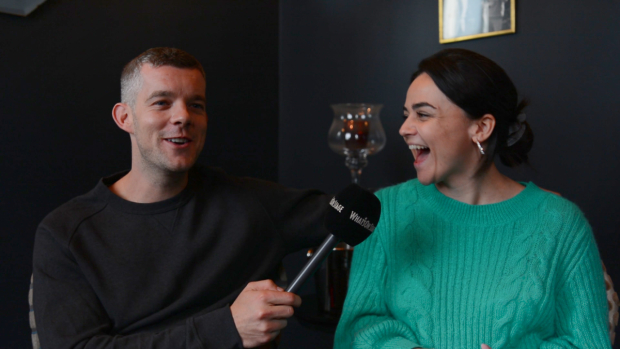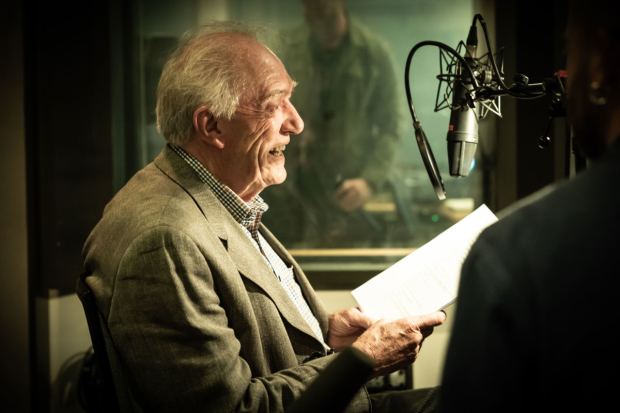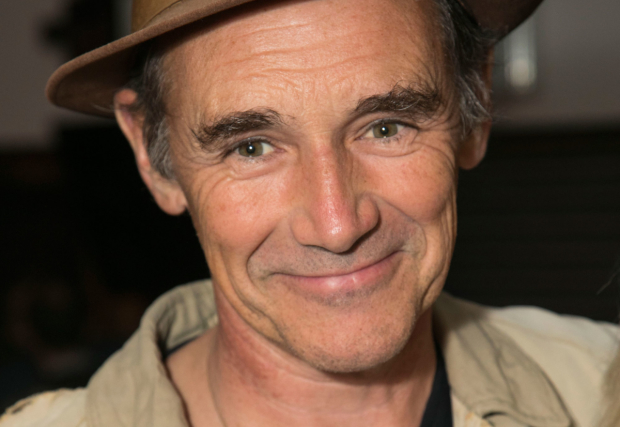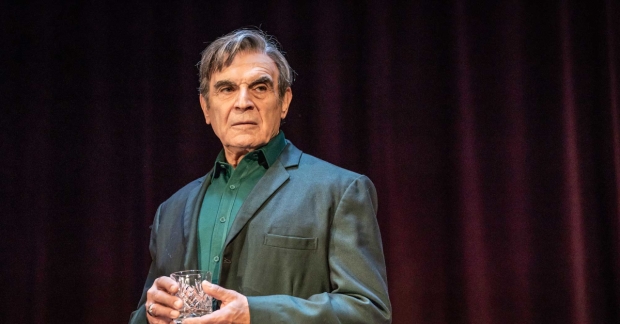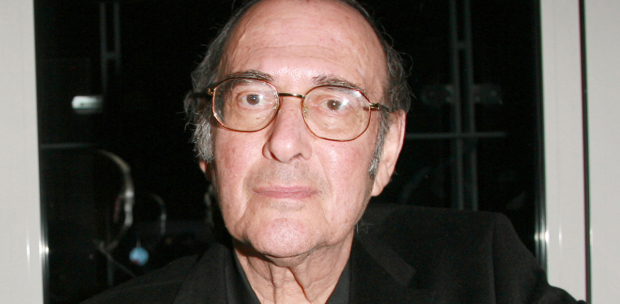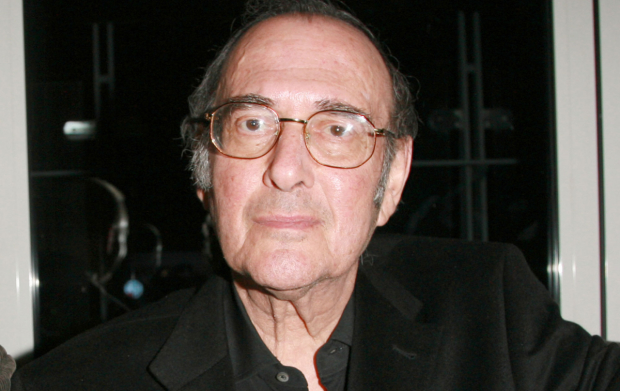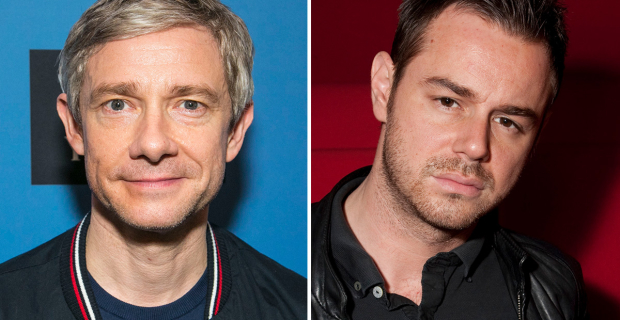Review: Pinter One, One for the Road/Mountain Language and more (Harold Pinter Theatre)
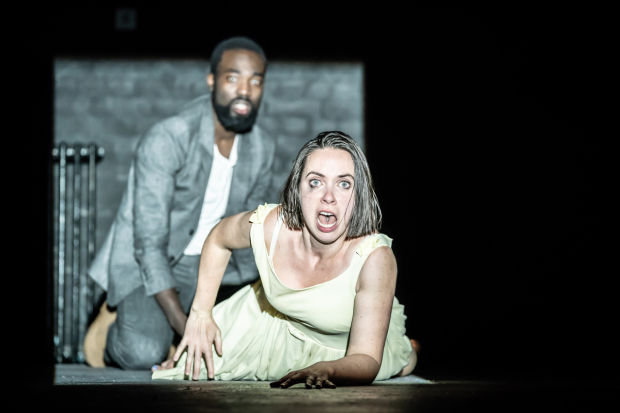
© Marc Brenner
This six-month season of Harold Pinter's short plays and sketches starts with a bang. Literally. Red, white and blue confetti showers down on the audience as Jonjo O'Neill's smarmy politician saunters on in Press Conference, to explain that there's not much difference between being head of the secret police and culture minister when you're in a totalitarian state. Both involve "keeping society free from infection."
Pinter himself, in the grip of the cancer that led to his death, played the part when the sketch first premiered in 2002. You feel his presence in this electrifying start to a bill of his most searing political pieces, in the casual asides – "We distrusted children if they were the children of subversives. We abducted them and brought them up properly. Or we killed them." – in the humour that makes you squirm and laugh simultaneously. You hear his voice.
You hear it, in fact, in breaks between the scenes, rasping and strong, in quotations from his Nobel Prize-winning lecture. "What has happened to our moral sensibility?" he asks.
It is a good question and it sets all the tone perfectly for a bill that can't be described as enjoyable, but which is never less than compelling. Your attitude to Pinter's more political plays probably depends on your feeling about his anger. The works in the first half have specific triggers in the events of his time – the treatment of the Kurdish people in Turkey, the Gulf War, the dictatorship in Argentina – but written with a white-hot fury that moves them from the specific to the universal.
Since nothing since his death has done anything to lessen the misuse of power that he consistently and chillingly documents, that anger seems to me more and more valuable. Certainly, under Jamie Lloyd's rigorous and careful direction, with a dark cube set by Soutra Gilmour that rotates to reveal different grey-walled rooms, where anonymous acts of horror are perpetrated, they speak with incredible clarity.

© Marc Brenner
But they vary in tone and quality. Precisely, from 1983, is a clever sketch in which two men (played here by Maggie Steed and Kate O'Flynn) discuss in clipped tones, over a drink, a figure that turns out to be a body count; Death is a poem from 1997 (which Pinter quoted in his Nobel Prize lecture) which Steed speaks from a darkened doorway, bringing out every ounce of its haunted poetry; American Football, another poem, performed by O'Flynn is a brilliantly sardonic attack on the gap between the full-mouthed reality of victory and the pious platitudes with which it is expressed, ostensibly in sport but really in war.
Then, there's The Pres and an Officer, a piece discovered by Pinter's widow Antonia Fraser in 2017, in which a president makes a fatal mistake with his nuclear button: the President is very clearly Trump, impersonated by Jon Culshaw, in a scene that is both funny in a Dr Strangelove kind of way, and chilling because it comes so close to what many believe to be true.
The more substantial fare is in the shape of The New World Order (1991), Mountain Language (1988) and One for the Road (1984), three studies of oppressors and their tortured victims. In the first, terrifying in its simplicity, a man sits naked and hooded in a chair, while his captors – brash O'Neill and a frighteningly hyped Paapa Essiedu – gloat about what they are going to do to him, and the pleasure it will give them. Mountain Language, which features the voice of its original protagonist Michael Gambon, shares that sense of the arbitrary exercise of authority, where an old woman and a wife visiting their imprisoned menfolk are forbidden from speaking in their own tongue, the only language the mother can speak. It is terse but hugely expressive, and beautifully performed.
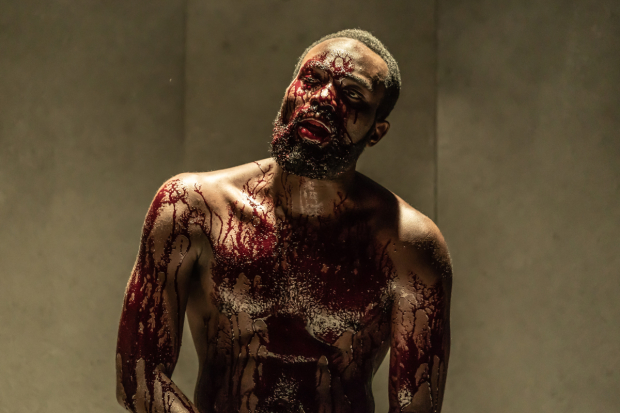
© Marc Brenner
For me, One for the Road, the most substantial of the pieces, an almost obscenely unwatchable study of cruelty and pathology in four short scenes, is the least successful. The key to it comes early. "We are both civilised men," says chief torturer Nicolas to his victim Victor (Essiedu, terrific again). But as played by Antony Sher, Nicolas – whacking back the whisky as he interviews a family who are under suspicion of an unnamed crime – is too obviously deranged, too clearly evil. It is a play that is so horrific it doesn't need any added.
There are no such problems after the interval in Ashes To Ashes, directed with great clarity by Lia Williams. In a battered sitting room, with orange light flooding in from the street, Rebecca and Devlin (O'Flynn and Essiedu) elliptically circle around the story of a violent love affair and a terrible event, like a Holocaust. The tension is palpable between them, as the emotions shift and pull. The language is precise but its meaning is mysterious and unknowable. Both actors are superb, finding the exact beats of its oddity, its ordinariness and its overwhelming sense of threat. It is a great, but depressing start, to a fascinating season.



